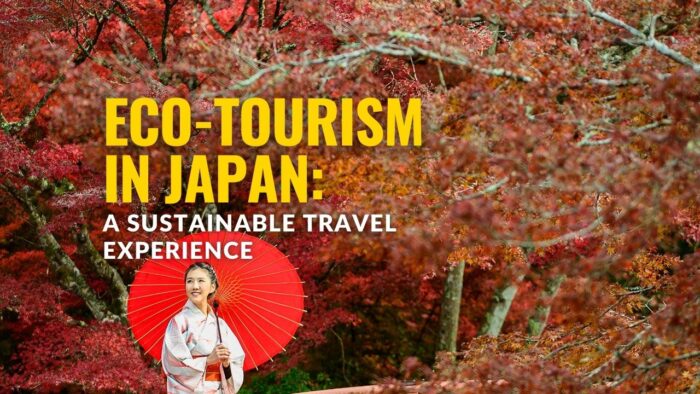Experience Eco-Tourism in Japan: Rural Homestays and Organic Farms
Eco-tourism, a rapidly growing trend in travel, provides an immersive experience that prioritizes the conservation of natural environments and the appreciation of local cultures. Japan, renowned for its picturesque landscapes and rich traditions, stands out as a top choice for eco-tourism enthusiasts. Through the integration of sustainable practices in its tourism sector, Japan offers travelers a unique opportunity to responsibly uncover its natural marvels. Let’s delve into the captivating world of eco-friendly initiatives, such as the enchanting Rural Homestays and the bountiful Organic Farms.
Homestays in Japan
Immerse yourself in the wonders of eco-tourism in Japan by embarking on a journey of rural homestays. These unique lodgings offer guests the unparalleled opportunity to reside with welcoming local families, providing an authentic glimpse into the time-honored Japanese way of life while also making a positive impact on the local economy. Nestled within serene organic farms, these homestays invite visitors to partake in the full spectrum of farming activities. Whether it’s the art of planting rice or the joy of harvesting fresh vegetables, these hands-on encounters create a profound bond with the land and its inhabitants.
Exploring National Parks in Japan
Exploring national parks in Japan offers a diverse range of experiences, from subtropical to subarctic environments. Japan boasts 34 national parks, each with unique landscapes, wildlife, and cultural experiences. Here are some notable ones:
-
Nikk? National Park: Located in the Kanto region, this park is known for its rich cultural heritage, including the famous Nikko Tosho-gu shrine, stunning waterfalls, and beautiful autumn foliage.
-
Daisetsuzan National Park: Situated in Hokkaido, this is Japan’s largest national park, offering rugged mountain landscapes, hot springs, and diverse wildlife, making it a paradise for hikers and nature lovers.
-
Keramashoto National Park: Located in Okinawa, this park features crystal-clear waters, vibrant coral reefs, and abundant marine life, ideal for snorkeling and diving.
-
Shiretoko National Park: Also in Hokkaido, this UNESCO World Heritage site is known for its pristine wilderness, diverse wildlife including brown bears and orcas, and breathtaking coastal scenery.
-
Hakone National Park: Famous for its hot springs, scenic views of Mount Fuji, and the picturesque Lake Ashi, this park is a popular destination for both relaxation and adventure.
These parks offer a wide range of activities such as hiking, boating, fishing, and hot springs, providing visitors with numerous ways to enjoy Japan’s natural beauty.
Responsible Wildlife Encounters
Birding in Japan is another excellent way to engage in responsible wildlife tourism. The country is home to a diverse array of bird species, including the endangered Japanese crane, which can be observed in places like Kushiro Shitsugen National Park in Hokkaido. Ethical birding practices involve keeping a respectful distance, avoiding the use of playback calls that can stress birds, and adhering to local guidelines to minimize habitat disturbance.
Such practices ensure that birding enthusiasts can enjoy observing and photographing birds without negatively impacting their natural behaviors or habitats. By following these guidelines, both whale watchers and birders contribute to the conservation of Japan’s rich biodiversity and promote sustainable tourism practices.
Sustainable Travel Practices: Green Transportation and Eco-Friendly Accommodations
Sustainable travel practices are crucial for minimizing the environmental impact of tourism. Green transportation and eco-friendly accommodations are two key components of sustainable travel. Green transportation options include using public transit, cycling, walking, or opting for electric or hybrid vehicles. In Japan, the extensive and efficient public transportation network, including trains and buses, provides a convenient and eco-friendly way to travel. The Shinkansen, or bullet train, is particularly noted for its energy efficiency and low carbon footprint compared to air travel.
Additionally, bike-sharing programs and pedestrian-friendly cities like Kyoto and Tokyo encourage travelers to explore destinations in an environmentally friendly manner.
Eco-friendly accommodations are a vital part of sustainable travel. These lodgings prioritize sustainability through practices such as energy efficiency, waste reduction, and the use of renewable resources.
Cultural Immersion: Festivals and Traditional Crafts
Japan offers a profound cultural immersion experience through its vibrant festivals and traditional crafts. Festivals such as Kyoto’s Gion Matsuri in July, with its grand float processions, and Tokyo’s Kanda Matsuri in May, featuring parades with portable shrines, showcase Japan’s rich history and communal spirit.
The Awa Odori festival in Tokushima, celebrated every August, captivates with its energetic dance performances and traditional costumes.
Traditional crafts provide another layer of immersion; participating in a tea ceremony reveals the meticulous art of matcha preparation, while ikebana workshops teach the harmony and balance of Japanese flower arranging.
Engaging in pottery classes, such as those in Arita or Mashiko, allows for hands-on creation of delicate ceramics. Donning a kimono, especially during a festival or temple visit, offers a tangible connection to Japan’s sartorial heritage. These immersive experiences enable visitors to deeply appreciate and participate in Japan’s enduring cultural traditions.

Eco-Tourism as a Pathway to Sustainable Travel
Eco-tourism is a vital pathway to sustainable travel, focusing on responsible interaction with natural environments and local communities. It emphasizes conservation, minimizes environmental impact, and promotes cultural respect. By choosing eco-tourism, travelers support conservation efforts and local economies, fostering a symbiotic relationship between tourism and the environment.
Activities like wildlife safaris, nature hikes, and visits to eco-friendly lodges provide immersive experiences that raise awareness about environmental issues. Eco-tourism also encourages sustainable practices, such as reducing waste, conserving water, and using renewable energy sources.
Moreover, it empowers local communities by creating jobs and supporting traditional livelihoods, ensuring that tourism benefits are equitably distributed. Ultimately, eco-tourism fosters a deeper connection to nature and promotes a sustainable future for both travelers and destinations.
Follow and Subscribe to OutofTownBlog.com on Facebook, Twitter, Instagram, Pinterest, and YouTube for more Travel related updates.
Read:
